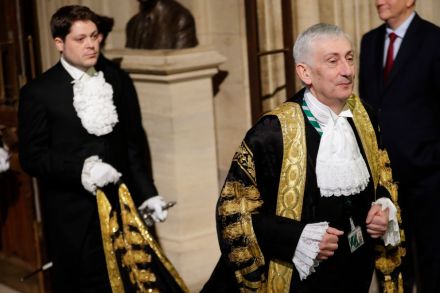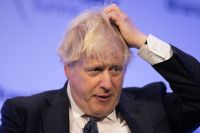Lindsay Hoyle has become a menace
The Labour party is not very good at electing prime ministers but it is very good indeed at electing House of Commons Speakers. Lindsay Hoyle is the fourth in a row to have been a Labour member, though it should be noted that John Bercow was nominally a Tory when he was installed and didn’t formally join the People’s party until after he stood down. Hoyle has discovered that he rather enjoys the limelight and the sound of his own voice While Bercow took the Speaker’s chair at the behest of many Labour MPs who understood the loathing felt for him by some of his Conservative colleagues, Hoyle attracted substantial





















